What is the Fair Food Program?
Founded in 2011, the Fair Food Standards Council (FFSC) oversees implementation of the Fair Food Program, a unique farmworker- and consumer-driven initiative consisting of:
- A wage increase supported by a price premium paid by fifteen corporate purchasers of Fair Food Program product;
- Human rights-based Code of Conduct, applicable to all Participating Growers spanning nine states from Florida to California and eleven different types of crops; and
- Market-based rewards and consequences that incentivize compliance with the Code.
The price premium and the Code of Conduct, which were developed by workers, growers, and corporate buyers, form the foundation for a new model of social responsibility.
The Fair Food Program emerged from the Coalition of Immokalee Workers’ (CIW) successful Campaign for Fair Food, a campaign to affirm the human rights of tomato workers and improve the conditions under which they labor. In 2015, the FFP expanded to the summer operations of Florida-based growers in Georgia, North Carolina, South Carolina, Virginia, Maryland and New Jersey. Since 2020, the FFP has been steadily expanding to new states and crops, adding new growers in Florida, Maryland, North Carolina, Tennessee, Colorado, and California as well as cut flowers, sweet potatoes, lettuce, herbs, squash, peaches, and melons.
What are the major elements of the FFP?
Under the Fair Food Program, Participating Growers have agreed to:
- A wage increase supported by the “penny per pound” price premium Participating Buyers pay for their produce;
- Compliance with the human rights-based Code of Conduct, including zero tolerance for forced labor, child labor and sexual assault;
- Worker-to-worker education sessions conducted by the CIW on the farms and on company time to ensure workers understand their new rights and responsibilities;
- A worker-triggered complaint resolution mechanism leading to non-adversarial complaint investigations and corrective action plans;
- Health and safety committees on every farm to give workers a structured voice in the shape of their work environment;
- Specific and concrete changes in harvesting operations to improve workers’ wages and working conditions, including an end to the age-old practice of forced overfilling of picking buckets (a practice which effectively denied workers pay for up to 10% of the produce harvested), the provision of shade in the fields, and the use of time clocks to record and count all compensable hours accurately;
- Ongoing auditing of the farms by the Fair Food Standards Council to ensure compliance with each element of the Program; and
- Market-based rewards and consequences that incentivize compliance with the Code. Participating Growers in good standing receive purchasing preference from Participating Buyers, while zero tolerance violations, or repeated failure to comply with agreed upon corrective actions, result in suspension and inability to sell to Participating Buyers.
Which corporate buyers are participating in the FFP?
For a list of Participating Buyers, click here.
How is the FFP monitored?
Beginning in the 2011-12 growing season, the Fair Food Standards Council (FFSC) oversees implementation of the FFP. The mission of the FFSC is to monitor the development of a sustainable agricultural industry that advances the human rights of farmworkers, the long-term interests of growers, and the ethical supply chain concerns of retail food companies through implementation of the Fair Food Program.
How does the premium (the “penny per pound”) reach the workers?
The Fair Food Program Premium (FFPP) is passed down along the supply chain – from the retail level to the grower level – and ultimately is added as a bonus to workers’ paychecks as part of the grower’s regular payroll process. The FFPP bonus is clearly marked as a separate line item on the worker’s paystub.
More than $40 million in Fair Food Program Premiums have been paid out since January 2011. These payments are ongoing, and as more buyers join the program as a result of the Campaign for Fair Food, the bonuses workers receive will grow commensurately. The FFPP payment mechanism for buyers varies. Some have elected to fold the FFPP into the final price they pay for their produce, akin to fair trade premiums, while other buyers issue separate checks directly to participating growers that reflect the amount and variety of products purchased.
Are the Fair Food agreements legally binding?
Yes, the Fair Food agreements – between the CIW and retailers, and the CIW and growers – are legally enforceable by the CIW.
